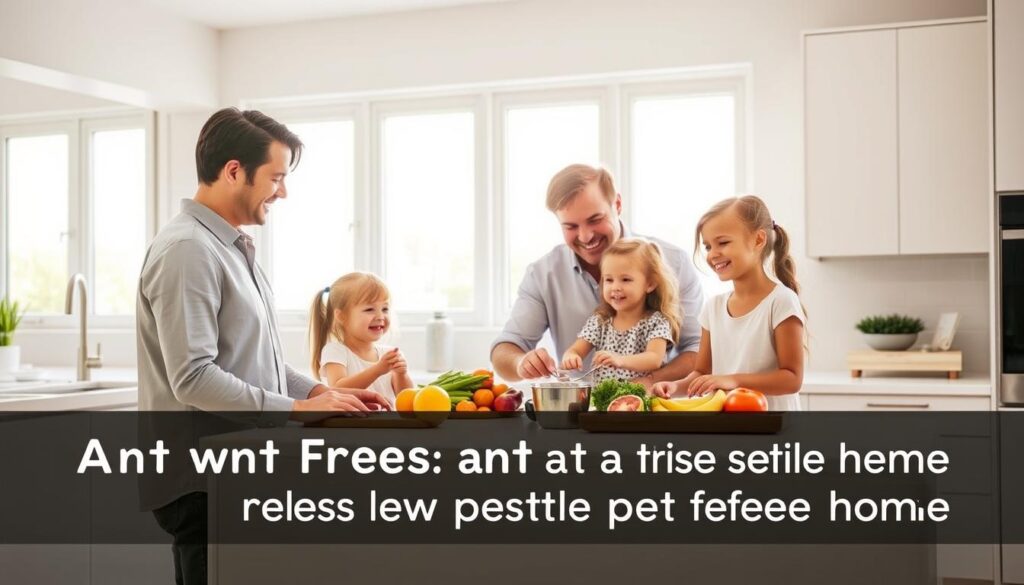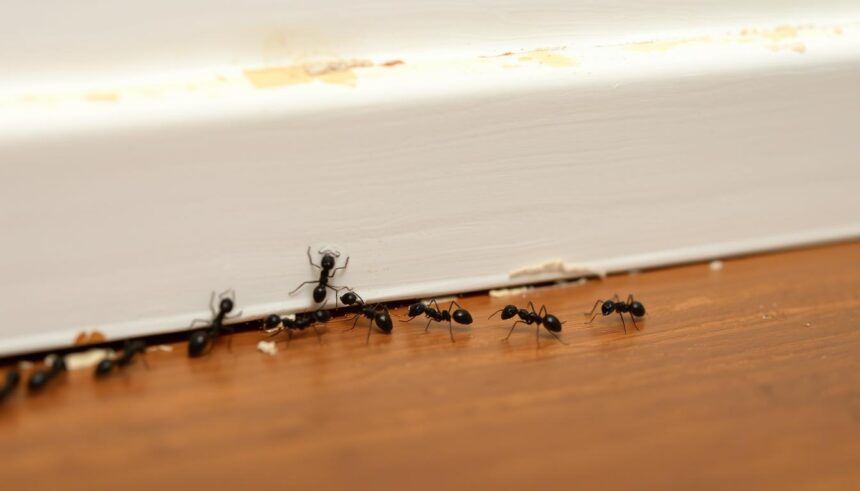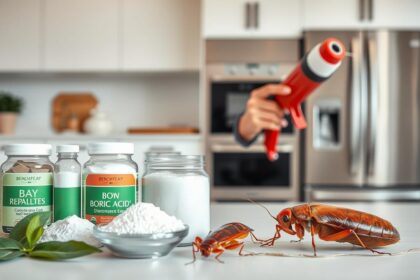Finding a trail of ants marching across your kitchen counter can be frustrating. Whether they’re after the sweet residue from your morning coffee or exploring your pantry for crumbs, ants are persistent home invaders. The good news is that you don’t need expensive exterminators or harsh chemicals to solve your ant problem. With the right approach, you can eliminate these tiny intruders and prevent them from returning. This guide will walk you through effective, simple methods to get rid of ants and keep your home ant-free.
Why Ants Invade Your Home
Understanding why ants enter your home is the first step in effectively eliminating them. Ants aren’t targeting your house specifically – they’re simply following their natural instincts to find food, water, and shelter.
Ants follow scent trails that lead them to food sources in your home
What Attracts Ants to Your House?
Ants enter homes searching for three main things:
Common Entry Points
Ants can squeeze through the tiniest openings to access your home. Some common entry points include:
Once scout ants find food, they leave a scent trail (pheromones) for other worker ants to follow. This explains why you might see a few ants one day and a whole army the next.
How to Identify the Type of Ants in Your Home
Different ant species require different treatment approaches. While there are over 12,000 ant species worldwide, here are the most common household invaders you might encounter:
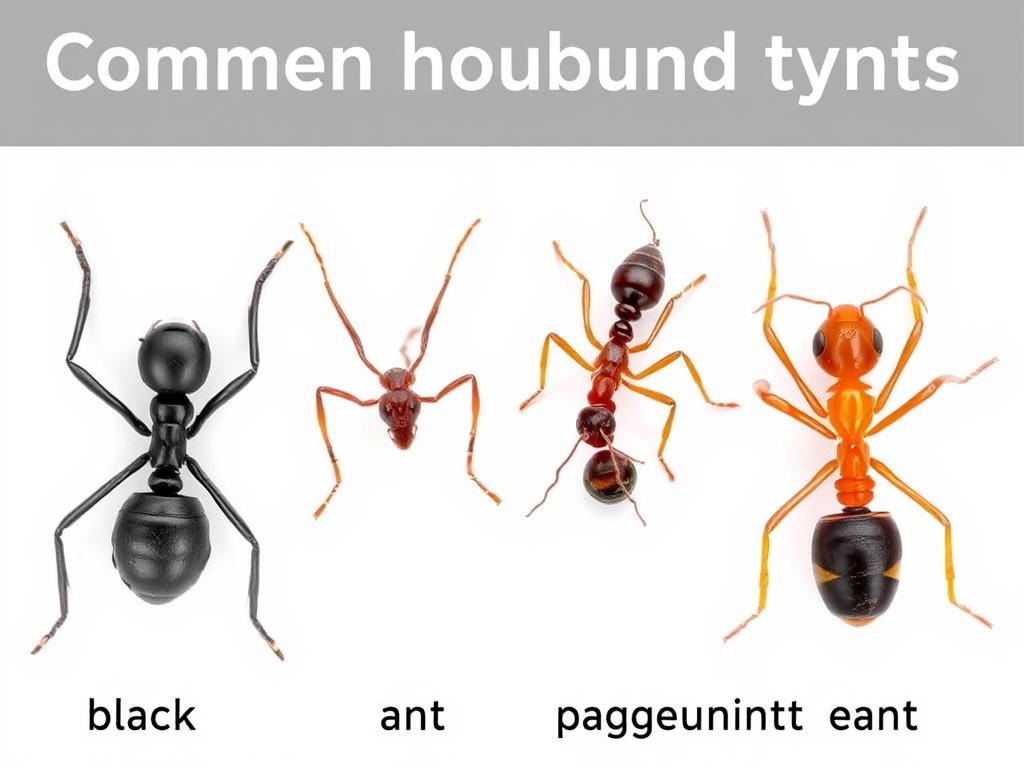
Odorous House Ants
These small dark brown or black ants emit a rotten coconut smell when crushed. They’re attracted to sweet foods and typically nest in wall voids or under floors.
Carpenter Ants
Larger than most house ants (¼ to ½ inch), carpenter ants can damage wood by tunneling through it to create nests. They prefer damp, decaying wood and are often found near windows, doors, or bathroom areas.
Pavement Ants
Small dark brown to black ants that commonly nest under sidewalks, driveways, or foundation slabs. They enter homes searching for food and can be identified by the parallel lines on their heads.
Sugar Ants
A general term for ants attracted to sweet substances. They’re typically small and can range in color from brown to black. These persistent foragers will travel long distances for sweet foods.
7 Natural Ways to Get Rid of Ants
Before reaching for chemical solutions, try these effective natural methods to eliminate ants from your home:
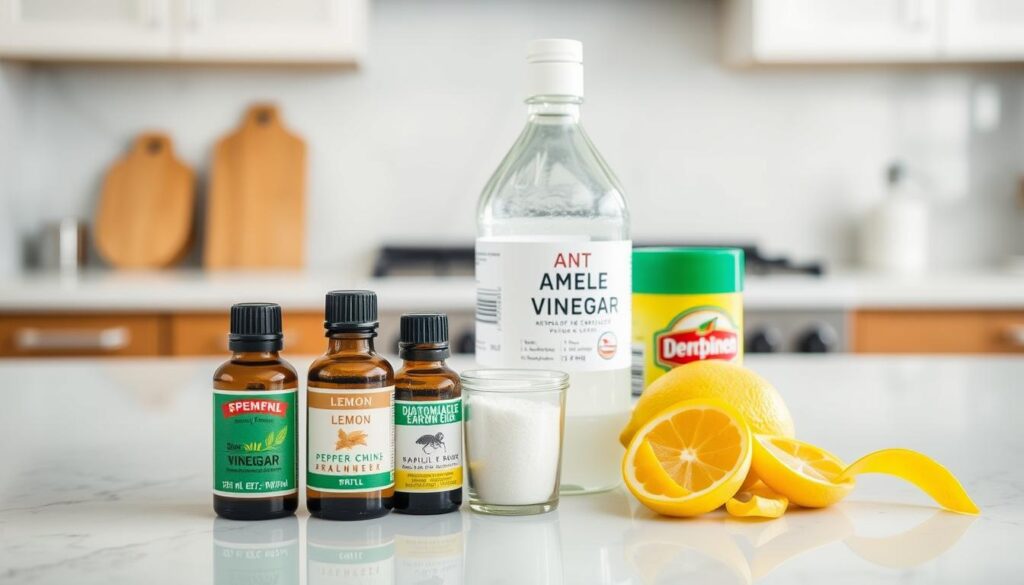
1. White Vinegar Solution
White vinegar is both a cleaning agent and an effective ant repellent. The strong smell disrupts their scent trails and deters them from returning.
While vinegar’s smell dissipates quickly for humans, ants can detect it for days, keeping them away from treated areas.
2. Essential Oils
Several essential oils repel ants naturally due to their strong scents that disrupt pheromone trails and irritate ants.
Peppermint Oil
Mix 10-20 drops of peppermint oil with 2 cups of water in a spray bottle. Apply around entry points, windowsills, and areas with ant activity. Reapply every few days.
Tea Tree Oil
Combine 5-10 drops of tea tree oil with 2 cups of water in a spray bottle. Apply to ant trails and entry points. The strong scent deters ants effectively.
Keep essential oils away from pets, especially cats, as they can be toxic to animals. Always store oils out of reach of children.
3. Diatomaceous Earth
Food-grade diatomaceous earth is a natural powder that kills ants by absorbing the oils in their exoskeletons, causing them to dehydrate.
Always use food-grade diatomaceous earth, which is safe around humans and pets, not the type used for pool filters.
4. Borax and Sugar Mixture
Borax (sodium tetraborate) is a natural mineral that’s toxic to ants but relatively low in toxicity for humans when used properly.
The sugar attracts the ants, while the borax kills them when ingested. Worker ants will carry the solution back to the colony, helping eliminate ants you don’t see.
5. Lemon Juice
The acid in lemon juice destroys ant scent trails and creates a barrier they won’t cross.
6. Coffee Grounds
Used coffee grounds contain compounds that repel ants naturally.
7. Boiling Water
For outdoor ant nests, boiling water can be an effective immediate solution.
Be extremely careful when handling boiling water to avoid burns. Never use this method near plants you want to keep, as it will damage them.
How to Prevent Ants from Entering Your Home
Prevention is the most effective long-term strategy for keeping ants out of your home. These steps will help create an ant-proof environment:
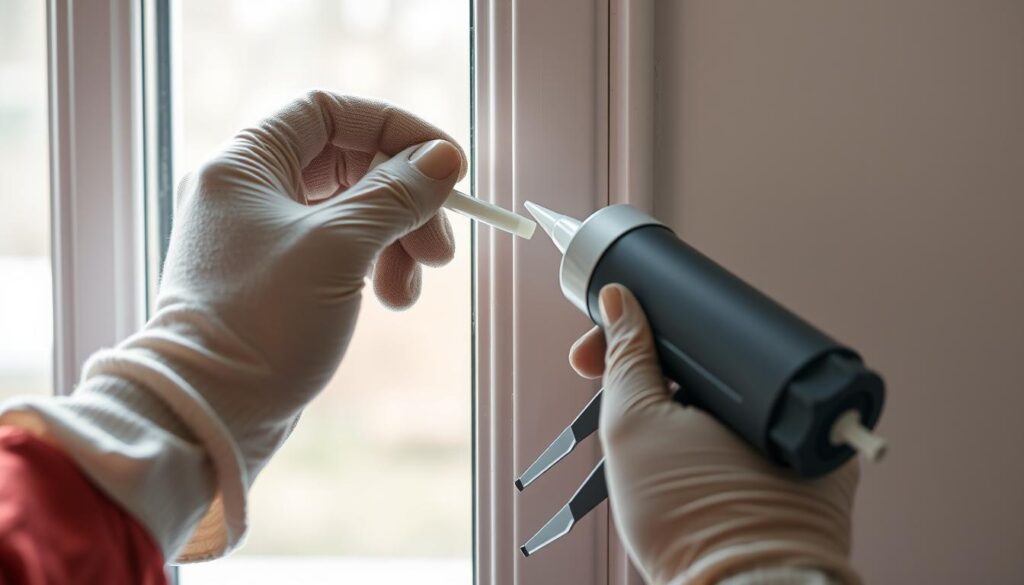
Eliminate Food Sources
The most important step in ant prevention is removing what attracts them in the first place.
Seal Entry Points
Make it physically impossible for ants to enter your home by sealing their access points.
Reduce Moisture
Since ants are also attracted to water sources, controlling moisture is essential.
Create Natural Barriers
Certain substances can create barriers that ants won’t cross.
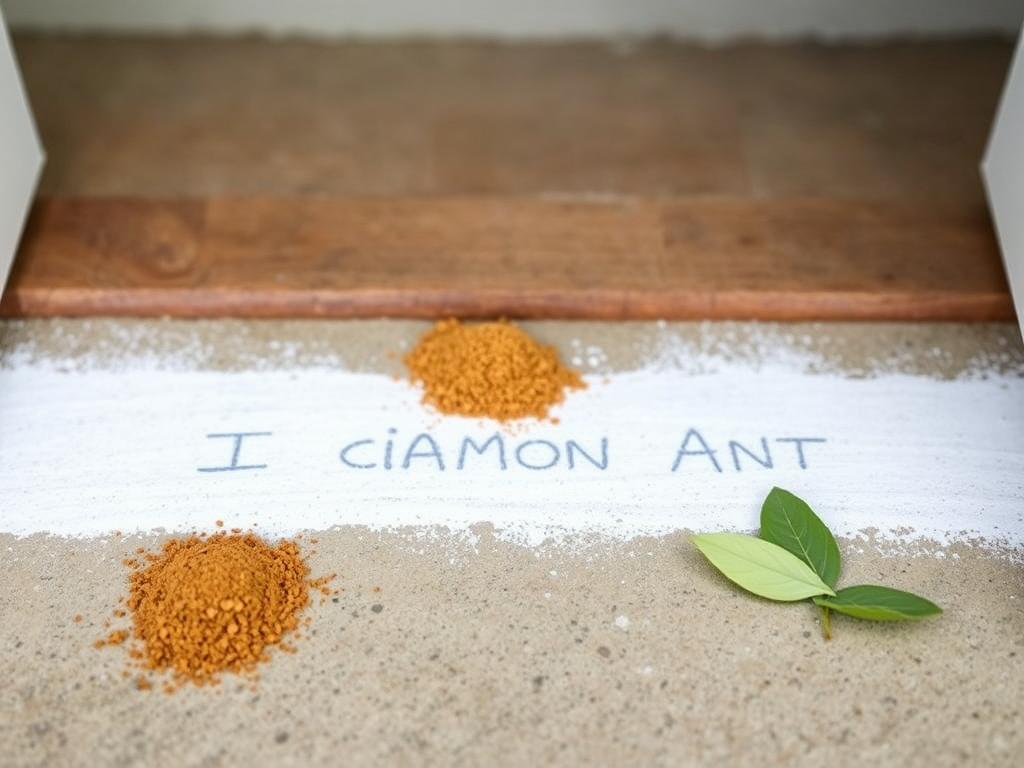
When to Use Commercial Ant Control Products
If natural methods aren’t enough to control your ant problem, commercial products can provide more powerful solutions. Here’s when and how to use them effectively:
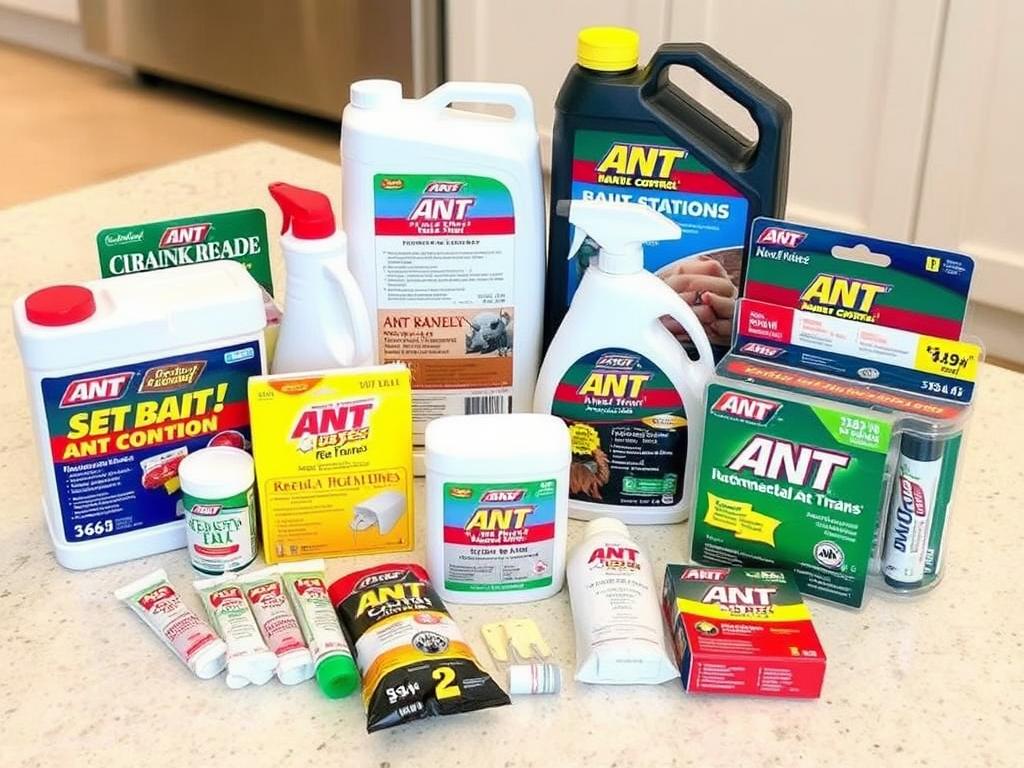
Ant Baits
Ant baits are often the most effective commercial solution because they target the entire colony, not just the visible ants.
Different ant species are attracted to different foods. If one bait doesn’t work, try another with a different food attractant (sweet, protein, or oil-based).
Ant Traps
Ant traps work similarly to baits but are enclosed in protective containers that prevent access by children and pets.
Residual Sprays
These create a barrier that kills ants on contact and continues working for weeks or months.
Avoid using sprays and baits together in the same area. Sprays can contaminate baits, making them repellent to ants and reducing their effectiveness.
Special Tips for Kitchen Ant Problems
Kitchens are particularly attractive to ants due to the abundance of food and water. Here are specific strategies for keeping your kitchen ant-free:

Daily Kitchen Habits
Consistent cleaning routines are your best defense against kitchen ants.
Food Storage Solutions
Proper food storage eliminates easy access to ant food sources.
Problem Areas to Monitor
Pay special attention to these common ant entry points in kitchens:
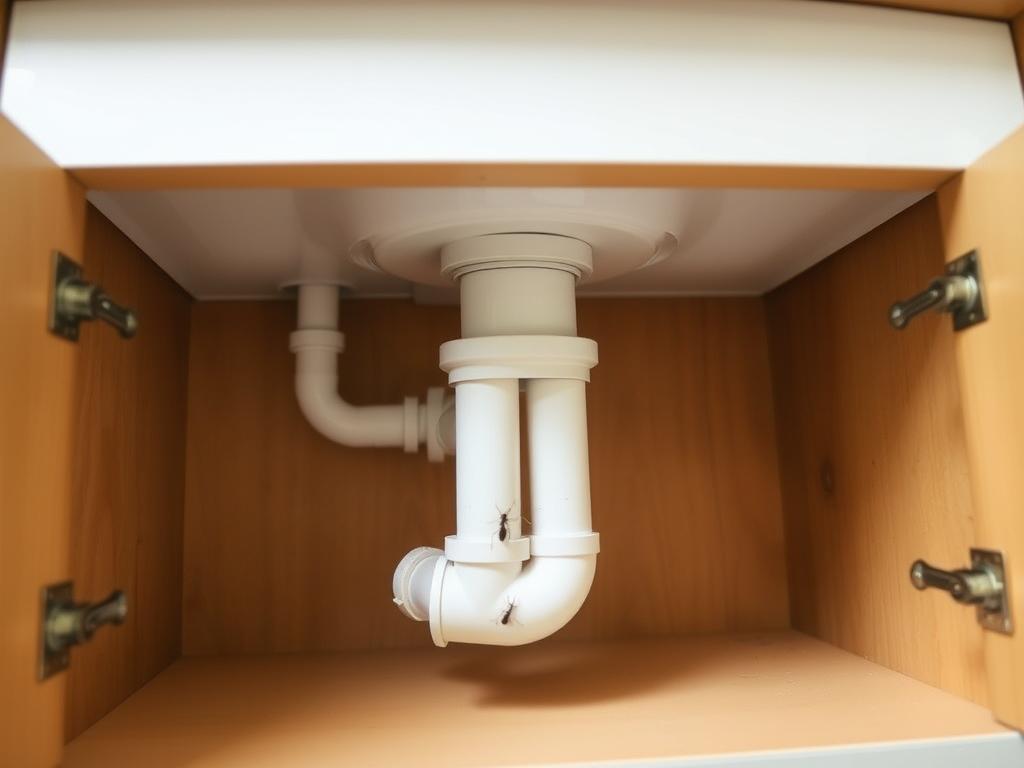
When to Call Professional Pest Control
While most ant problems can be resolved with DIY methods, some situations warrant professional intervention:
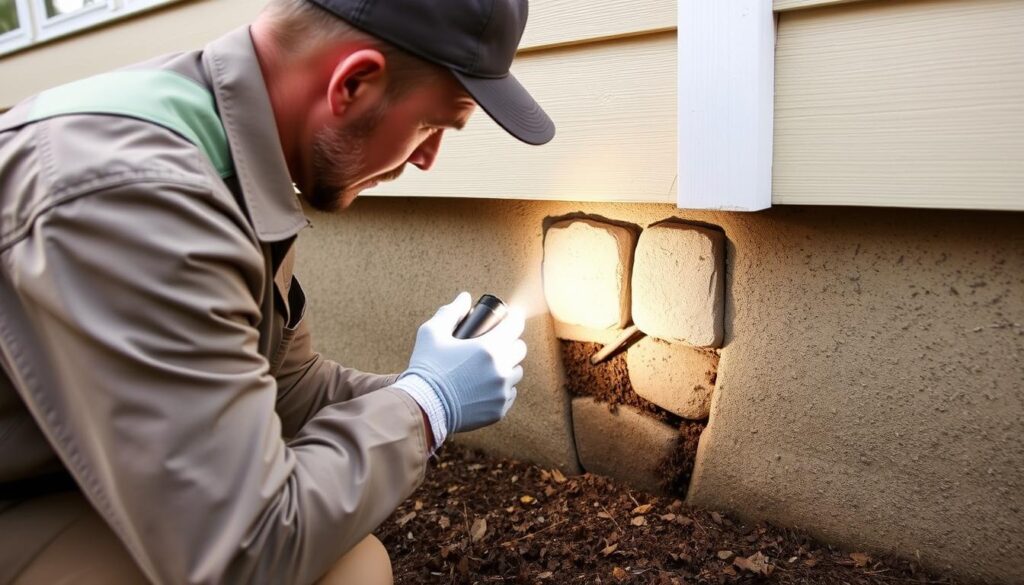
Signs You Need Professional Help
What to Expect from Professional Treatment
Professional pest control offers several advantages over DIY methods:
Choosing a Pest Control Service
When selecting a professional, look for these qualities:
Ask potential pest control services if they offer eco-friendly or low-toxicity options, especially if you have children, pets, or health concerns.
Frequently Asked Questions About Ant Control
How long does it take to get rid of ants?
With consistent treatment, you can expect to see significant reduction in ant activity within 3-7 days. Complete elimination may take 1-3 weeks, depending on the size of the colony and the type of ants. Carpenter ant infestations typically take longer to resolve than other species.
Will killing ants attract more ants?
Crushing ants can release alarm pheromones that may attract more ants to the area. Additionally, dead ants can release oleic acid, which signals other ants to remove the corpse. Instead of crushing, use a vacuum or ant-specific products that don’t trigger these responses.
Are ants harmful to humans?
Most household ants are more of a nuisance than a health threat. However, they can contaminate food and surfaces as they travel between outdoor areas and your kitchen. Some species, like fire ants, can bite or sting, causing pain and allergic reactions in sensitive individuals. Carpenter ants can damage wood structures over time.
What smells do ants hate the most?
Ants are repelled by strong scents that disrupt their pheromone trails. The most effective repellent smells include vinegar, peppermint, tea tree oil, lemon, cinnamon, and eucalyptus. Different ant species may respond differently to various scents, so you might need to experiment to find what works best for your specific ant problem.
Do coffee grounds really repel ants?
Yes, coffee grounds can help repel ants. The strong smell disrupts their scent trails, and compounds in coffee are naturally repellent to many ant species. For best results, use freshly brewed grounds while they’re still damp and aromatic. Place them near entry points or areas with ant activity, and replace them every few days as they dry out.
Reclaim Your Ant-Free Home
Getting rid of ants doesn’t have to be complicated or expensive. By understanding why ants enter your home and implementing the right combination of prevention and treatment methods, you can effectively eliminate these persistent pests. Remember that consistency is key – maintaining clean surfaces, sealing entry points, and promptly addressing new ant sightings will help keep your home ant-free in the long term.
For stubborn infestations or if you’re dealing with carpenter ants that might damage your home, don’t hesitate to call professional pest control services. Their expertise can save you time and prevent potential property damage.
Stay Prepared for Pest Problems
Want to keep your home ant-free year-round? Download our free Ant Prevention Checklist to help you maintain an ant-proof home through every season.
